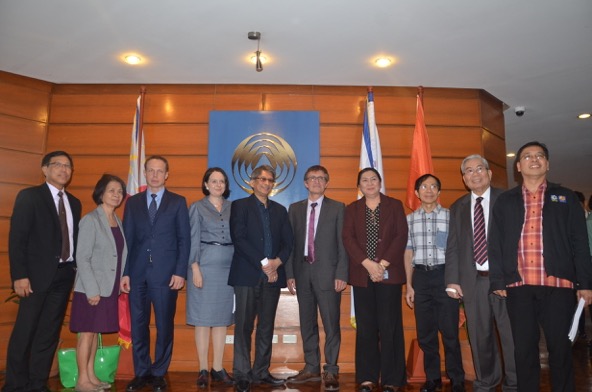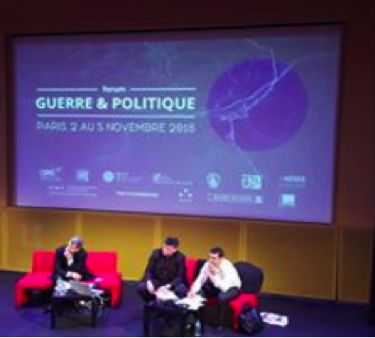News and Events
Russian Scholar: You Should Not Underestimate The Whole Spectrum of Russia-China Relations
- Details

©Development Academy of the Philippines
PASIG CITY (November 24) – “You should not underestimate the whole spectrum of Russia-China relations”. These were the words of Dr. Viktor Sumsky, Director of the ASEAN Center of the Moscow State Institute of International Relations, as he talked about how enduring the Russia-China relationship can be, even if the US should take a potentially drastic foreign policy shift under a Trump presidency. This was in response to the question on what would be the political basis of ties between Moscow and Beijing should the US revert to an isolationist foreign policy.
“You should not underestimate the factors of mutual gravitation which exist irrespective of the United States. And I’m talking here about the whole spectrum between us and China,” Dr. Sumsky said.
Konrad Adenauer Stiftung, Foreign Service Institute jointly hold maritime conference
- Details
For the second year in a row, the Konrad Adenauer Stiftung co-organized with the Asian Institute of Management and the Foreign Service Institute a conference on “Maritime Challenges in the Asia Pacific: Moving Towards Political, Environmental, and Functional Cooperation.” This was held on 18 November 2016 in Makati City. DFA Assistant Secretary Hellen de la Vega delivered opening remarks on behalf of Secretary of Foreign Affairs Perfecto Yasay, Jr. who was out of the country. Presentors included experts from China, Indonesia, Japan, Malaysia, the Philippines and Vietnam.
Roundtable @ Lido Discusses Foreign Policy Challenges
- Details
A regular media forum in “kapihan style”, Roundtable@Lido is hosted by veteran journalist Melo Acuna on Wednesdays at the Lido Cocina Tsina on Mindanao Avenue, Quezon City. Last November 9, APPFI President Aileen Baviera was among the guests invited to speak about the impact of Duterte's foreign visits & potential effects of either a Clinton or Trump presidency on the Philippines. The other guests included Mr Jose Custodio, Commodore Rex Robles, and former Ambassador jose Apolinario Lozada, Jr.
Paris Conference on War and Politics
- Details

Professor Aileen Baviera of the UP Asian Center took part in a roundtable at the forum, “Guerre et Politique: Analysing War and the Rebuilding of Social Relationships,” which was held from 2 to 5 November in Paris, France.
In the roundtable, “Guerre et Politique: Cross-Perspectives in Various Regions of the World,” Professor Baviera argued that “geopolitical competition among the major powers leads to greater complexity in the search for solutions to East Asia’s maritime territorial and jurisdiction disputes. In the South China Sea, littoral states of Southeast Asia have to employ several different approaches in the face of an assertive China.”
